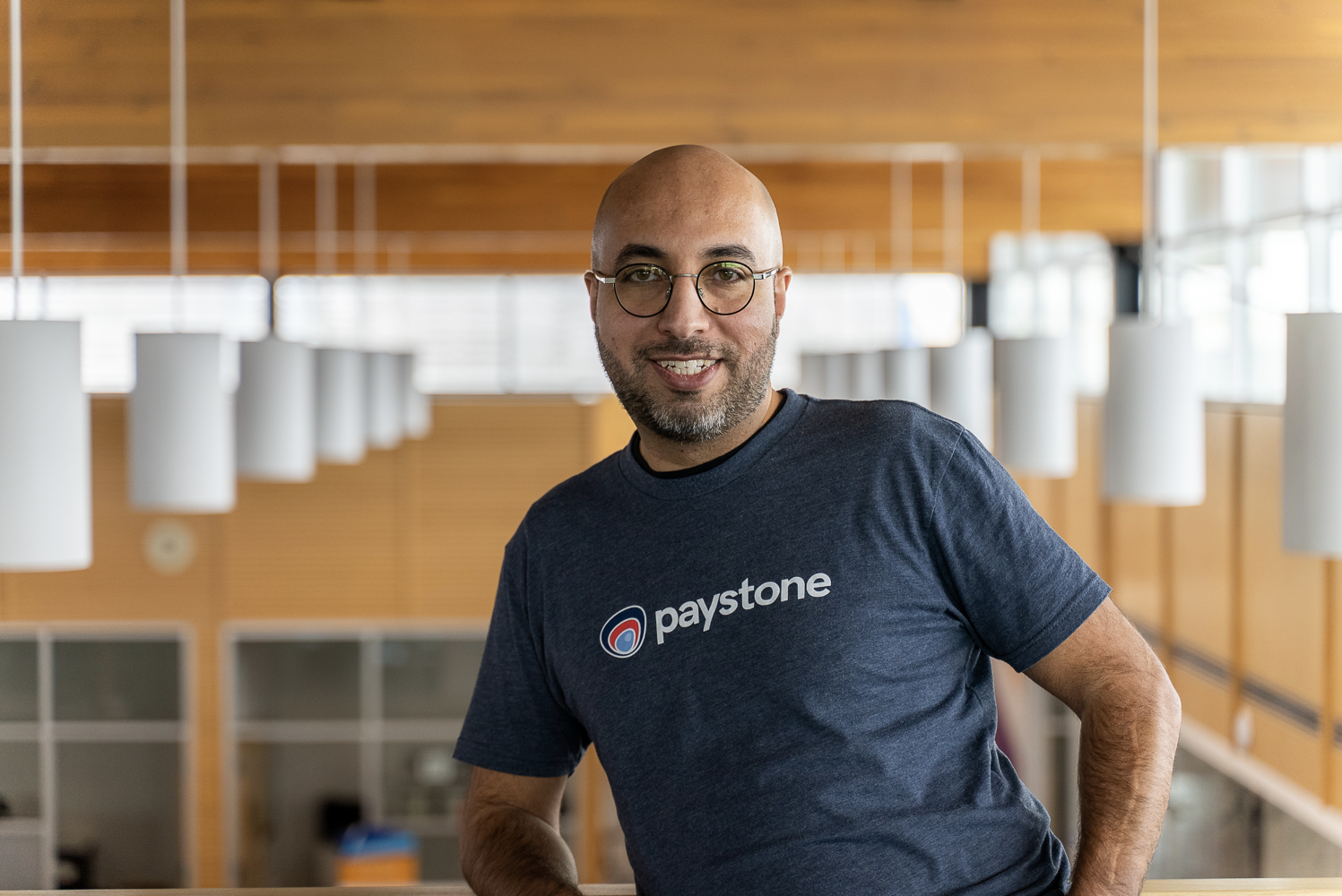Five acquisitions later, Tarique Al-Ansari explains Paystone’s M&A growth strategy
Jessica Galang

Like many businesses, Paystone CEO Tarique Al-Ansari says that one of the company’s key differentiators to competitors is its lower pricing. But, he knew that couldn’t be the company’s value proposition. “It gets to a point where if your competitive advantage is a lower rate and a better service, then you don't have a competitive advantage,” he says.
London, Ontario-based Paystone offers software tools and payment processing for “ecommerce-resistant” businesses like restaurants, and home-based services such as window cleaners. “Service-oriented businesses are currently very underserved from an online and digitization perspective,” says Al-Ansari.
From the moment due diligence begins, Paystone’s corporate development team is working to support the potential integration.
Paystone, which started as a payments company, slowly shifted to include online reviews, loyalty, gift card services and marketing automation to be valuable to customers beyond payments. To fuel this strategy, mergers and acquisitions have been key to growth; the company has so far acquired four startups in two years, plus a fifth that has not been announced yet.
Following a $69 million funding round, Al-Ansari talked to us about how Paystone determines the right acquisitions, how to successfully onboard those acquisitions and building a corporate development team.
Align acquisitions with your company vision
Al-Ansari notes that there are two parts of a business operation: the back office operations (like a point-of-sale system in a restaurant, for example), and the front office operations that include customer interactions, online reviews and loyalty programs. Paystone is focused on the latter, so its acquisitions should include solutions that help business owners grow and engage their customer base.
“We want to help businesses grow,” Al-Ansari says. “So every acquisition we do ties into that growth mission. We don't acquire assets that don't contribute or help the business grow.”
The Paystone DNA is to help businesses grow, so all acquisitions should align with that mission. The Paystone team looks at their product roadmap and determines how potential acquisitions fit into that roadmap, and the long-term value that acquisition will bring to its customers.
“Anything we touch is about business productivity and enhancing the front-office, day-to-day operations,” Al-Ansari says as an example. “It's all tied to growth, and that is us staying true to the core of our mission.”
Getting to know founders of the potential acquisition before moving onto valuations is the next step to evaluating acquisitions for the Paystone team. While product fit is important, it’s also important for teams to “see eye to eye, and that we're aligned on the mission and the target’s growth mindset, which we see in all their value-driven metrics,” he says.
Al-Ansari advises entrepreneurs not to lose sight of organic growth, even if M&A becomes part of expanding the product. If entrepreneurs aren’t seeing organic growth outside of M&A, “You're either not doing a good job telling your story and getting the word out there from a sales and marketing perspective, or your product needs a big enhancement from a value proposition perspective,” he says.
Mergers and acquisitions should accelerate growth, not create it.
Corporate development starts from day one
Mergers and acquisitions aren’t a simple hand-off, says Al-Ansari. From the moment Paystone begins doing due diligence, the company’s corporate development team is working to support the potential integration.
“Even if the business came to us through an M&A advisor or a broker, which is good from time to time, your own in-house team is actually going to be working day to day leading the integration.”
Al-Ansari’s best advice for founders exploring M&A: hire great advisors, such as specialized lawyers and accountants, to streamline the process.
“Most people usually have a corporate lawyer, but your corporate lawyer and your M&A specialists are two different things,” he says.
Companies should ensure that, when going with a corporate lawyer or external accountant, the advisors have securities and M&A experience to understand all the special nuances that can go into M&A activity.
Corporate development experience among companies can mean the difference between a deal going through or not. Al-Ansari says that M&A acquisitions are not like bidding on a house, and it’s not just about price — it’s about chemistry. Investing in HR and people operations to ensure a smooth transition between teams is critical to success.
“We need to get to a point our process is very attractive for the seller, meaning we’re quick on pre-closing due diligence and post-closing integrations, so we’re quick on legal contracts, financial diligence and deal structuring, and we’re quick on closing, funding and integration,” says Al-Ansari.
Even if one potential buyer is offering more money than another, the one offering a smoother process, even with less money, could have an edge in making and winning an important acquisition and retaining competitive talent.
“I really believe investing in our M&A expertise is going to enhance our ability to attract top entrepreneurs and founders who share the same mindset as us,” he says.
BACK










